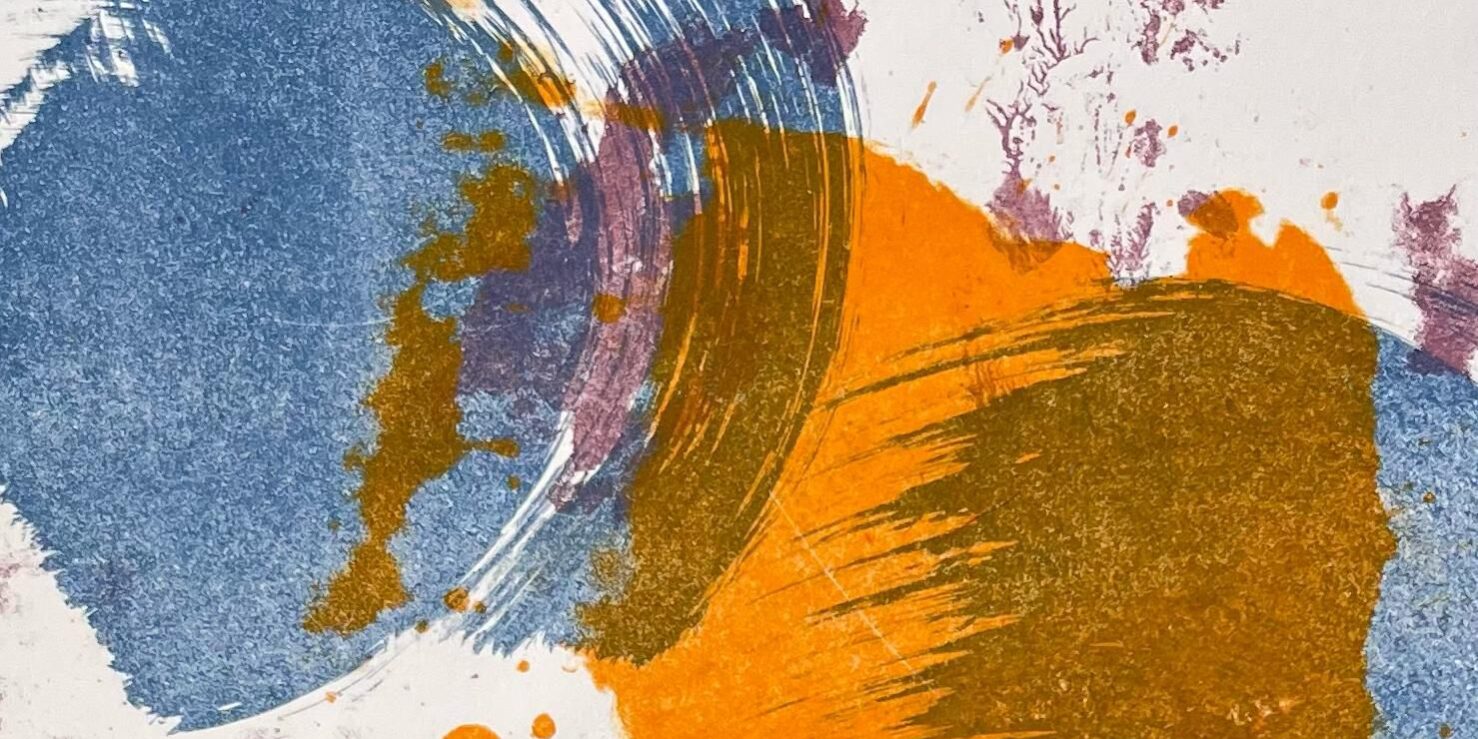Fizz Malas – ‘Lost Property’
05/06/25 till 18/06/25
“My practice explores and plays with the law, particularly intellectual property, censorship and privacy through printmaking, photography, and installation. The multiplied image is also relevant as well as examining labels such as illustration, decorative, and labour.
More broadly, I’m concerned with how well (or not) legal concepts are communicated enabling scrutiny by society at large.
It’s a practice which results in a delicious number of questions and hardly any answers.
For the exhibition at Salon, I am showing work from the last two years, using the physicality and materiality of printmaking (lithography and monotypes) to explore and play with ‘authorship’ in the age of digital ‘ecosystems’ and tech in your hand (as things currently stand). I have also begun to prod the notion of ‘originality’ which is a concept key to copyright law in the 21st century.
Lithography (and printmaking generally) is particularly relevant because of its link to the origins of copyright and the development of ‘authorship’ and ‘originality’ as legal norms. It is also intensely physical. Lithography (printing on stone) is a fairly straightforward process but requires a great deal more technical know-how that it seems.
The main lithographic work featured in this exhibition ‘Be the talent, not the labour’ was printed in Offenbach in Germany, where Alois Senenfelder (who also studied law!) developed lithography in the late 1700s. He set up his second workshop in London. I have a strong bond to this workshop and am delighted to be able to build a link between it and the UK/Margate.
Join us at Salon on:
✨ Thursday 5th June 6-9pm – Private View
🦩 Saturday 7th June at 2-6pm – “Mine? Yours? Ours? Theirs? An afternoon of frivolous conversation, drinks, nibbles and light vandalism with the artist”

